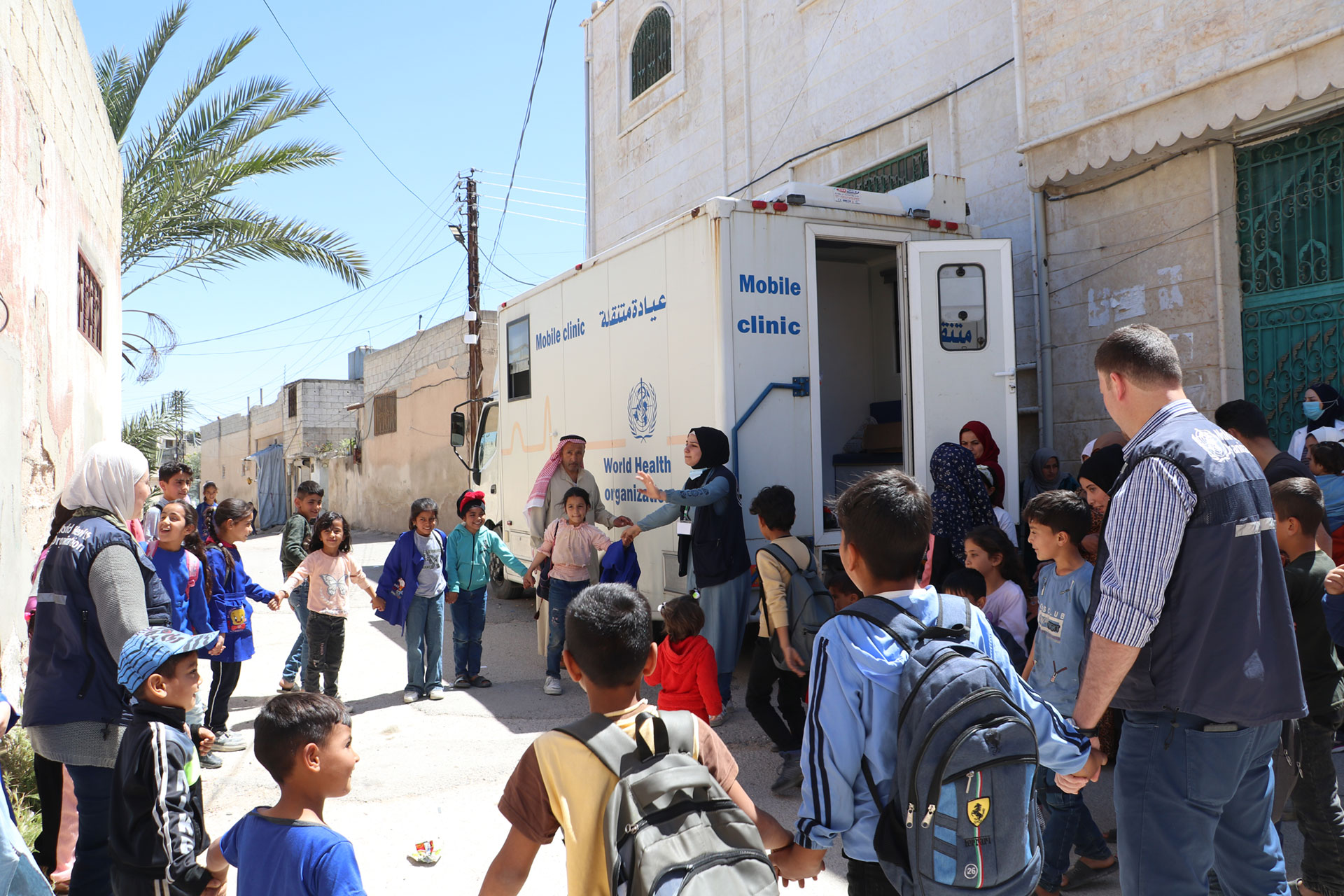 <1 December 2024, For a mother in Aleppo seeking safe childbirth, or a child in Damascus coping with chronic illness, access to basic health services is far from guaranteed. After more than a decade of war, there are no easy fixes for the Syrian Arab Republic’s struggling health system.
<1 December 2024, For a mother in Aleppo seeking safe childbirth, or a child in Damascus coping with chronic illness, access to basic health services is far from guaranteed. After more than a decade of war, there are no easy fixes for the Syrian Arab Republic’s struggling health system.
Around 15 million people, or 65% of the population, require urgent health assistance. Over half of all hospitals and primary care centres remain non-functional. The risk of disease spread is exacerbated by overcrowding, food insecurity and poor sanitation, especially among displaced families.
In response to persistent challenges, the World Health Organization (WHO) Country Office in Syria, in collaboration with the Ministry of Health and WHO Regional Office for the Eastern Mediterranean, convened 2 national consultations in Damascus on 26–27 November 2024. The sessions aimed to empower local actors with the tools, data and partnerships they need to drive Syria’s recovery, and the health-related Sustainable Development Goals (SDGs), forward.
“These consultations were more than just meetings. They were a space to connect, learn and share our hopes for a stronger, healthier Syria,” said Public Health Officer in WHO Syria Country Office Ms Hyam Bashour, one of the lead facilitators of the sessions. “By working together across ministries and regions we are building the foundation for long-term, sustainable change.”
The consultations brought together 56 participants from the ministries of health, education, water resources, higher education and local administration, the Syrian Arab Red Crescent, academia and the Planning and International Cooperation Commission. To ensure the voices of frontline communities were heard, representatives from Latakia, Aleppo and Damascus shared their insights on local realities.
A key focus was on the interconnections between SDG3 (Good Health and Well-being) and other goals, particularly SDG5 (Gender Equality), with open discussions on maternal health, reproductive rights and gender-based violence. Participants also explored how to monitor over 50 health-related indicators at the local level using data-informed approaches.
The consultations underscored the urgent need for cross-sectoral collaboration and the critical role civil society and local actors play in health planning and delivery.
Syria is now exploring a digital platform that will allow health officials, in partnership with civil society and local communities, to track progress in real time, enhancing transparency and accountability and helping ensure that no one is left behind.




